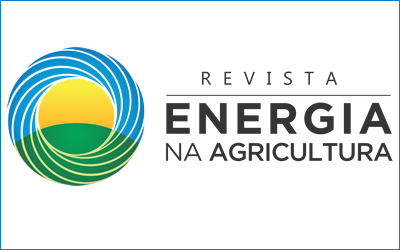OPERATIONAL EFFICIENCY OF THE PNEUMATIC PROBE IN GRAINS SAMPLING AND DECISION-MAKING WITH PYTHON
DOI:
https://doi.org/10.17224/EnergAgric.2023v38n4p44-55Resumo
OPERATIONAL EFFICIENCY OF THE PNEUMATIC PROBE IN GRAINS SAMPLING AND DECISION-MAKING WITH PYTHON
RODRIGO GARCIA BRUNINI1
1 Data Scientist, Sumitomo Chemical Latin America - SCLA, Avenida Paulista 1106, 9°andar, CEP 01310-1914, São Paulo, São Paulo, Brasil. rgbrunini@gmail.com.
ABSTRACT: Soybeans are an essential commodity for the Brazilian agribusiness GDP, as it is a crop exported to various countries. To ensure the quality and health of post-harvest grains, it is essential to follow rigorous storage standards. The export regulations for the commodity are demanding, making it crucial to use technologies to improve operational efficiency in grain selection. In this context, the pneumatic probe and the Python computer language enable process automation and rapid data analysis, contributing to more efficient selection, assertive decision-making, and avoiding contaminations that guarantee grain quality and purity. The present study was conducted in a grain cooperative where two-grain sampling technologies were used, the pneumatic probe and the manual probe. Soybean qualitative data were evaluated in a grain laboratory, and quantitative analyses were performed using the Python language. The pneumatic probe demonstrated greater operational efficiency in relation to quality parameters and soybean grain classification, standing out in greater accuracy in collecting toxic seeds and contaminants. The use of Python language in real-time monitoring proved to be an efficient tool for decision-making.
Keywords: Soybean, Post-harvest, Quality, Storage, Computational language
EFICIÊNCIA OPERACIONAL DA SONDA PNEUMÁTICA NA AMOSTRAGEM DE GRÃOS E TOMADA DE DECISÃO COM PYTHON
RESUMO: A soja é uma commodity essencial para o produto interno bruto do agronegócio brasileiro, sendo uma cultura exportada para diversos países. Para garantir a qualidade e sanidade dos grãos pós-colheita, é imprescindível seguir rigorosos padrões de armazenamento. As regulamentações de exportação da commodity são exigentes, tornando fundamental o uso de tecnologias para aprimorar a eficiência operacional na seleção dos grãos. Nesse contexto, a sonda pneumática e a linguagem computacional Python possibilitam a automação de processos e rápida análise de dados, contribuindo para uma seleção mais eficiente, tomada de decisão assertiva e evitando contaminações que garantem a qualidade e pureza dos grãos. O presente estudo foi realizado em uma cooperativa de grãos onde foram utilizadas duas tecnologias de amostragem de grãos, a sonda pneumática e a sonda manual. Os dados qualitativos soja foram avaliados em um laboratório de grãos e as análises quantitativas foram realizadas por meio da linguagem Python. A sonda pneumática demonstrou ter maior eficiência operacional frente aos parâmetros de qualidade e classificação dos grãos de soja, destacando-se na maior acurácia na coleta de sementes tóxicas e contaminantes. O uso da linguagem Python no monitoramento em tempo real demonstrou ser uma ferramenta eficiente para a tomada de decisão.
Palavras-chaves: Soja, Pós-colheita, Qualidade, Armazenagem, Linguagem computacional
Publicado
Como Citar
Edição
Seção
Licença
Copyright (c) 2024 ENERGIA NA AGRICULTURA

Este trabalho está licenciado sob uma licença Creative Commons Attribution-NonCommercial-NoDerivatives 4.0 International License.
Esta revista proporciona acesso publico a todo seu conteúdo, seguindo o princípio que tornar gratuito o acesso a pesquisas gera um maior intercâmbio global de conhecimento. Tal acesso está associado a um crescimento da leitura e citação do trabalho de um autor. Para maiores informações sobre esta abordagem, visite Public Knowledge Project, projeto que desenvolveu este sistema para melhorar a qualidade acadêmica e pública da pesquisa, distribuindo o OJS assim como outros software de apoio ao sistema de publicação de acesso público a fontes acadêmicas.





